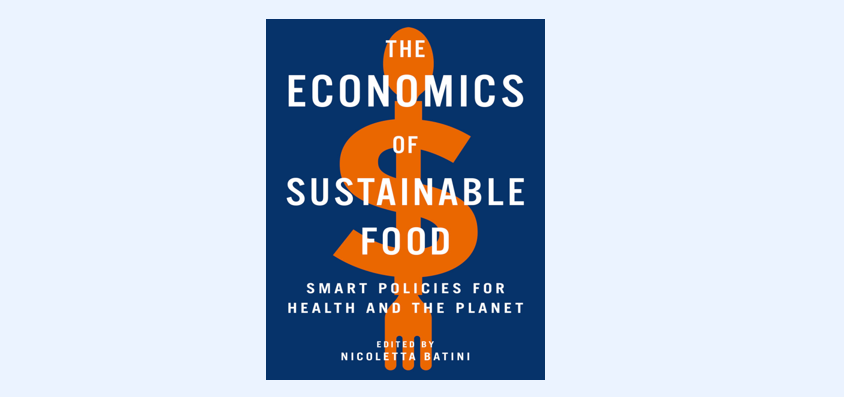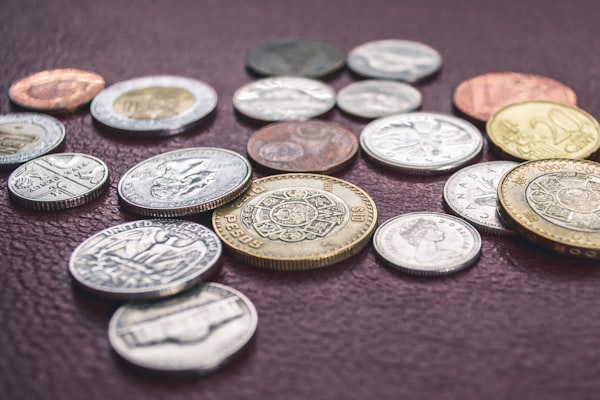Book review: the economics of sustainable food

The author of the book is an Italian economist with plenty of experience in innovative monetary and fiscal policy practices. She worked at the IMF, universities and even the Department of the Treasury (in Italy). The book takes the reader through a journey, that often feels academic, to cover all the major aspects of a "food revolution"; think about what has been happening with the Green energy and the surrounding ecosystem (and support), but for food.
- Title: The Economics of sustainable food
- Author: Nicoletta Batini
- Originally published: 2021
- Pages: 320
- Get it on Amazon
The book in a nutshell
The book is divided into four sections, each dealing with a specific aspect of the food system: production, consumption, food waste and sustainable use of land/seas for ecosystem conservation. Each section starts with scientific evidence about the status quo and then proposes policies that could be implemented to meet today's challenges (to make the food ecosystem sustainable). This includes real-world examples from both developed and less developed economies. The main actions recommended are:
- Halve animal-based food production, replacing it with plant-based production.
- Shift away from conventional farming and fishing to regenerative farming. This can be achieved by raising taxes on intensive animal farms and farms growing crops destined for animal use, cutting subsidies to these operations, and redirecting subsidies to sustainable farms just as carbon taxes are being proposed and raised to shift away from fossil fuels toward sustainable energy sources.
- Labor market reforms promoting regenerative agro-fishing jobs and the setup of enterprises involved in small agro-business.
- Public investment in research and innovation and public sponsoring of food industry initiatives aimed at promoting healthy food.
My review
The book's title might mislead some into thinking that, with a focus on economics, it's jam-packed with money-related content. But in truth, there isn't much of that. Economics encompasses areas like Microeconomics (e.g. Production), Macroeconomics (e.g. Fiscal policy), and International Economics (e.g. Trade), which are the book's primary focus.
Quoting the author, "This book fills this gap by assembling a multidisciplinary team of scientists and economic policy experts to outline and elucidate the science confronting the environment, our economies, and public health due to today's global food system [...] it evaluates the economic perks of greening the agri-food sector, assesses the environmental and public health gains from achieving these aims, and suggests a set of economic and structural policies to realize the Great Food Transformation."
Although the language isn't overly technical or difficult to grasp, the content might be a tad dense for the average Joe. As the author targets a specific audience, the book is touted as essential not only for financial ministries (like finance or labor) and central banks but also for policymakers. It's also for national regulators and financial supervisors. Now, that doesn't mean those outside these fields won't find the book intriguing. But personally, I found limited utility in the policy recommendations (a substantial part of the book) since I don't have much sway in these areas.
A few standout points for me:
- The book provides fresh insights into a topic many are still unfamiliar with. We might be aware that eating organic is healthier, but this book delves deeper. It discusses the economic ramifications of organic AND sustainable food on farmers, the labor market, public health, and even government costs—all supported by scientific data.
- It showcases country-specific cases, highlighting initiatives with their aims and outcomes. Examples span both developed nations (with the Netherlands and Denmark in the lead) and emerging economies (like India and Bhutan). This differentiation is crucial, given the varied needs, cultures, and resources of these diverse countries.
- The segments on Food waste/loss and Land/Sea conservation are eye-opening. These aren't typically front-of-mind when one thinks about organic food.
In a nutshell, if you're hunting for investment or finance insights, this book might leave your appetite unsated (pun absolutely intended). But for a comprehensive understanding of what's needed for a food revolution benefiting our health, economy, and planet? This book's got you covered.





